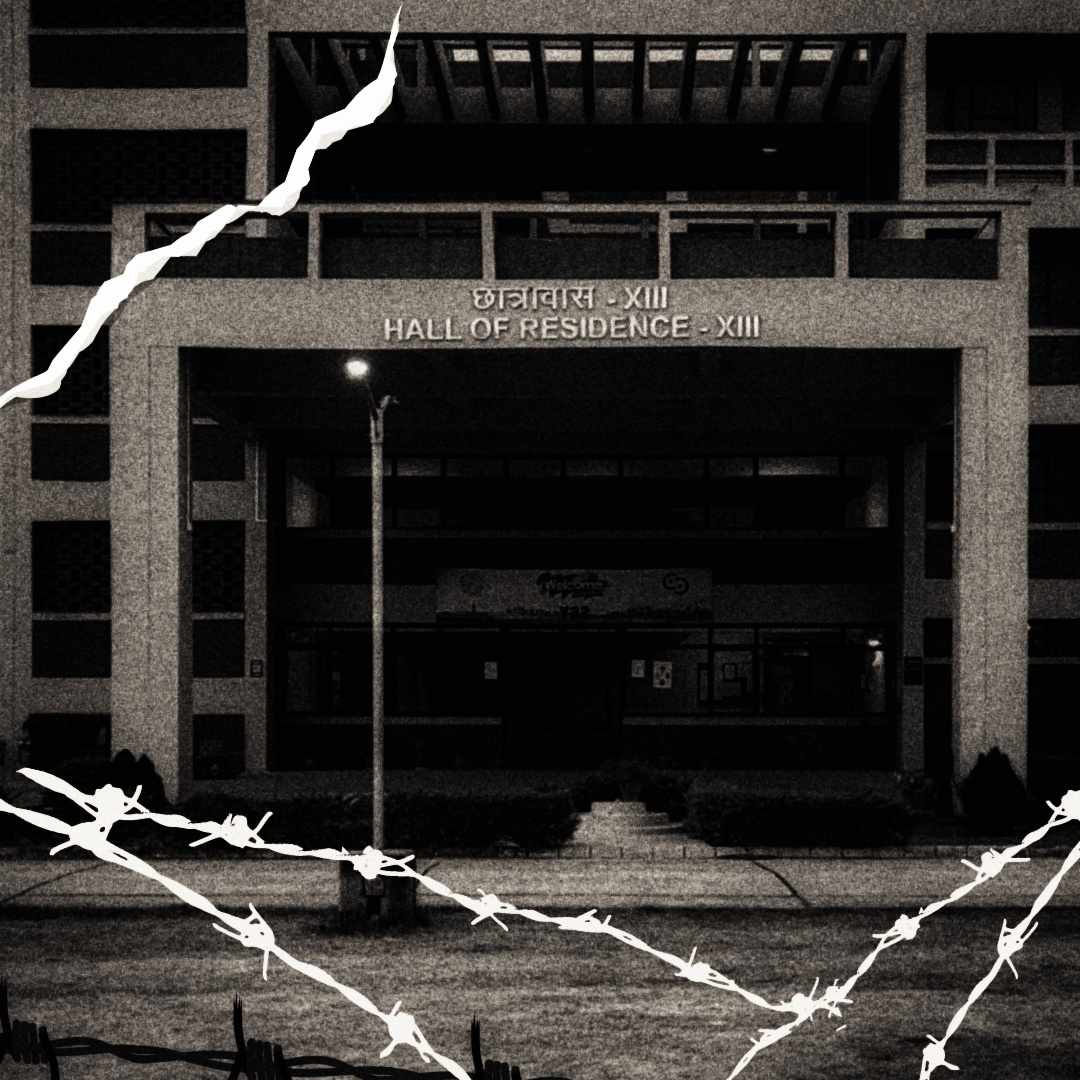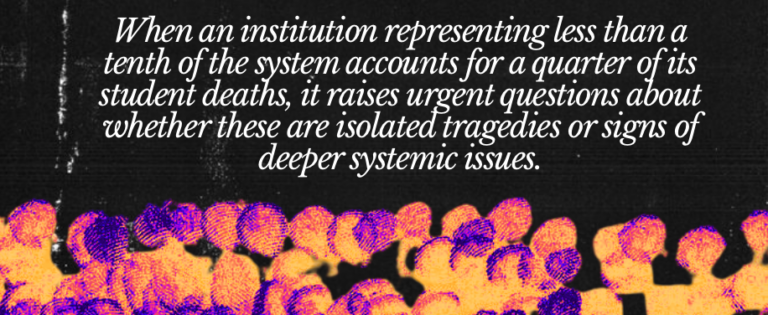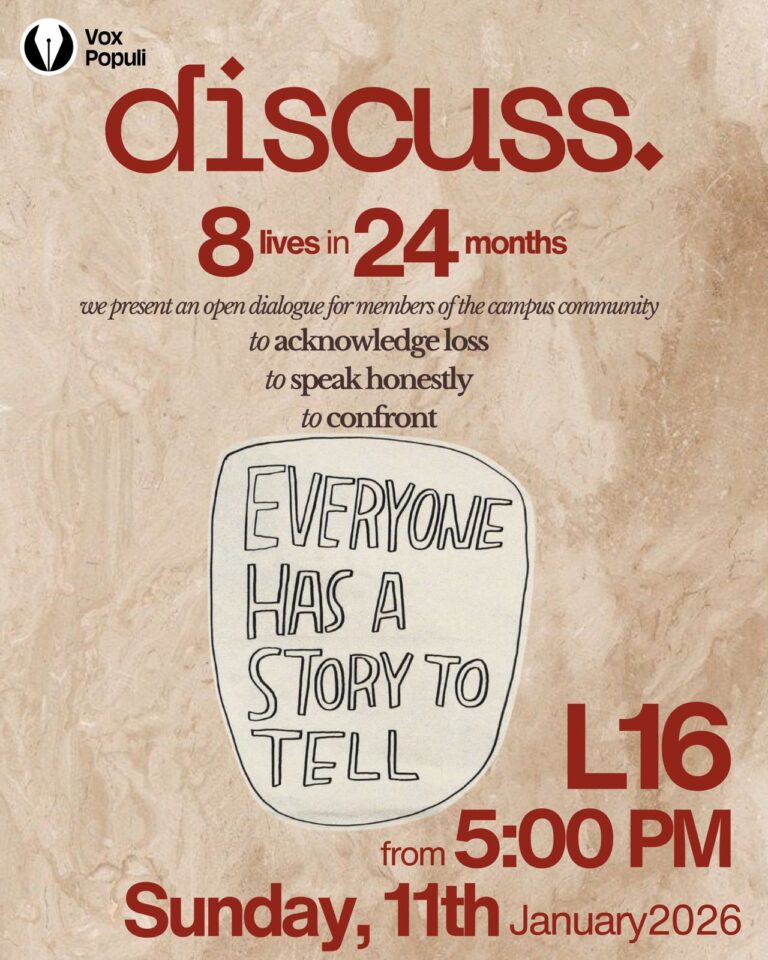Following a major incident in Hall 13, where students were found intoxicated, the Warden-in-Charge enacted a ban on the entry of female students into the premises of Hall 13. In the subsequent days, when female campus residents tried to enter hall 13, to their surprise, entry was denied to them, and the only reason given by the SIS guards was that they had been told to do so. Due to the rumors, confusion, and contentions surrounding this incident, our team investigated the issue. Continue reading to know what happened.
HOW DID IT HAPPEN?
On April 30, following an incident where some residents of H13 along with their female acquaintances were found intoxicated, a ban was imposed on the entry of female students into the Hall 13 premises.
The hall office conveyed that a few incidents in the recent past, as well as the incident involving the intoxication of students, impelled them to impose the ban. Any officials involved in the imposition of this ban, however, did not formally communicate the ban. The closest relevant notice was an email notifying the expulsion of the resident(s) involved in the incident. When probed further, it was found that none of the student representatives, the President, Students’ Gymkhana, or the CoSHA Convener (who acts as the representative of Hall 13 due to the lack of HEC in the hall) were consulted or informed about the ban. The only official who was informed about the ban prior to the imposition was the Dean of Students’ Affairs. According to a notice sent by the hall warden to the hall office, the ban is to stay in place until “further notice”.
In conversation with the hall office, the main reasoning provided to support the ban was to deter students from bringing and consuming intoxicating substances inside the hall premises. Additionally, they said that a large number of first-year UG girls were entering Hall 13 by writing “canteen” on the entrance gate register but were actually going to the hall residents’ rooms. According to the hall office, the warden received multiple emails from hall residents and their parents complaining about several objectionable activities that had created an unsuitable environment for students. Therefore, to stop such rule violations, the warden decided to restrict the entry of girls in hall 13.
WHY WERE THE STUDENTS NOT INFORMED?
When asked why the residents were not informed about the ban, the hall office stated that emailing the residents didn’t appear to be necessary in this case, since no restrictions had been imposed on the residents of H13. Adding further, the hall office manager said that the hall warden made this decision taking into consideration the approaching midsems of Y22. He was of the opinion that the freshers were in need of extra guidance and that the ban was necessary to bring discipline back to the hall. In light of the numerous incidents that have occurred in H13 over the past few months, the hall administration has taken steps to reassure the community that there are consequences for violating hall rules.
Considering the pivotal role that the warden played in this situation, we emailed Prof. P. M. Mohite, warden-in-charge of Hall 13, requesting an interview. However, our request was denied by stating that “These are Hall 13 affairs. We do not want to interact with any third party about it. Thank you for your concern.”
WHAT LIES AHEAD?
According to the President Students’ Gymkhana, as communicated to him by the warden, the ban would be imposed for the entire duration of the stay of Y22 in Hall 13. While the CoSHA representative, Dhruv, and the President both agreed that the move was harsh, the President further opined that the ban should not have been imposed. He added that he had confronted the warden several times for the removal of the ban, to no avail.
This situation raises several questions, starting with how does the consumption of intoxicants relate to the restriction of entry of female students? Was this measure extreme? Or was it necessary and in the best interest of students? Does a blanket restriction on inter-gender hostel movement provide a definitive solution to tackle the central issue of intoxication on campus? Hall residents can consume substances irrespective of the presence of girls and can even partake in other unwarranted activities outside the hall. Instead, can we look for more impactful solutions such as sensitization sessions, individual counseling, or any other measures having a more lasting impact?
It also sheds light on how in general, the right for genders to interact with each other in public spaces like classrooms, cafes, etc., is considered a fundamental privilege that cannot be revoked. On the contrary, this same sense of absoluteness doesn’t seem to extend to private spaces such as rooms in halls. Free inter-hall movement is seen as a “privilege” rather than a basic right that cannot be taken away from the students.
The situation also leads us to more critical questions involving the power dynamics at hand. The warden’s power in matters involving Hall 13 seems absolute, especially in this situation. Imposing a ban without informing any residents or the student representatives, parties most affected by this decision, raises concerns about the feedback system and the value the administration gives to student representation. In this case, there is no body that mediates between these two entities nor a platform where a student can register complaints regarding hall administration. This seemingly absolute power that an appointed faculty possesses in students’ residential spaces raises essential questions about student representation in Hall administration. Is it time that Hall 13 forms an HEC? If not, then what measures can we take to make sure that such incidents do not take place again?
This event also highlights the importance of responsibly exercising the rights given to students and student bodies. It emphasizes the fact that responsibility and freedom go hand in hand. All things considered, it is clear that no situation is black or white, ergo no decision is clearly right or wrong, and as is the case, there are two sides to every story. However, there needs to be accountability and representation at every step in decision making, lest we lose the ‘student’ part of student decision-making.
Written By – Abhijit Jowhari, Aditi Khandelia, Aditya VS, Aujasvit Datta, Kaushal Jain, Mahaarajan J, Manasvi Nidugala, Mayur Agrwal, Nandini Vaid, Sruthi Subramanian, Zehaan Naik
Edited By – Bhavya Sikarwar, Kunaal Gautam, Sanika Gumaste, Zainab Fatima
Designed By – Sachidanand Navik, Manasvi Jain, Atharv Jiwane











